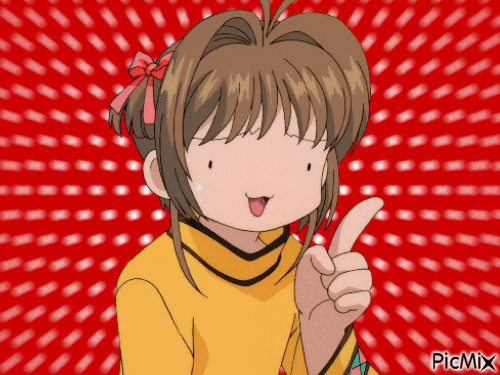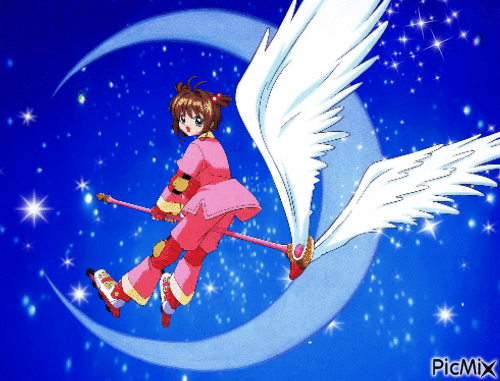
A magical journal and exploration of the potential power of 魔法少女 (mahō shōjo) by Lachan (they/them)
69 posts
I Never Liked The Term Pop Culture Magic.

I never liked the term ‘pop culture magic’.
As someone who grew up during the dot com boom, I used what I could to stitch together an understanding and practice of magic and that often included fantasy media. Even after my family switched from dial-up, our computer and television use was heavily monitored and scrutinized until we were in high school and college so I relied heavily on what books, games, and comics I could get my hands on. More often than not, fantasy books and comics were met with less questioning than texts on magic and the occult. This is not to say my parents were not trying to be understanding of my interests but they definitely voiced their opinion that my imagination was too active for my own good and they feared I would slip into delusions of fantasy. Even my friends became disinterested with what explorations of magic we were able to have and I was left to keep my thoughts and questions to myself while I found what esoteric wisdom I could by attending shul and talking with my rabbi.
When I moved cross-country for college, I felt free to finally try to tap into what magical community I could. I was lucky enough to stumble upon an occult bookstore where not only I was able to start having all sorts of conversations with lots of different practitioners, I also found my incredible partner. But even in this web of magical experiences I found myself in—working with chaos magick, folks from Thelemic and ceremonial magick backgrounds, traditional witchcraft, Zen Buddhism, and even Haitian Voudu initiates and rootworkers—there seemed to be a universal disdain for pop culture-inspired magics. (It didn’t help that one of the bookstore regulars, who is admittedly a powerful magician, was an avid pop-culture magician and otaku who lacked social maturity and consistently needed to be reminded not to dominate discussion circles with tales of his astral adventures with Goku and Bigfoot.) Everything and everyone was telling me, whether subtly or directly, that pop culture magic was inauthentic and, at worst, cringey and as a feminine-passing person, I felt like I needed to work extra hard to be seen as a legitimate magician amongst studied practitioners even though I could not shake the urge to explore more of what compelled me to study magic in the first place.
This is all to say that it took a lot of time and internal work to get to a place where I felt comfortable enough to talk about my mahō shōjo practice, start to share it with my peers, and even use the tag ‘pop culture magic’ for visibility. There are reasons why this kind of media is so compelling and it is a joy to explore the feelings and techniques it offers especially in the context of a broader magical discussion. There is absolutely no reason to purport that powerful magic cannot also be soft, girly, or dreamy. And while it makes me a little sad to see people engaging with these ideas continue to put down pop culture magics as somehow watered down or less-than other approaches, I think I understand why they do.
-
 lunathejaguar liked this · 1 month ago
lunathejaguar liked this · 1 month ago -
 augustfrogust liked this · 1 month ago
augustfrogust liked this · 1 month ago -
 chiyukiakasuna liked this · 1 month ago
chiyukiakasuna liked this · 1 month ago -
 general-coral liked this · 1 month ago
general-coral liked this · 1 month ago -
 uncontrollablequeerentity liked this · 1 month ago
uncontrollablequeerentity liked this · 1 month ago -
 niaskotl liked this · 1 month ago
niaskotl liked this · 1 month ago -
 reweaseme liked this · 1 month ago
reweaseme liked this · 1 month ago
More Posts from Majokkid
But I am curious of what that actually entails? Like, I don’t expect that many of those who say they can ‘physically’ transform undergo a spontaneous magical transformation sequence that others can witness. Rather, I think any magical hero can use costumes, tools, theater techniques, or even glamours to undergo a transformation that they can employ at any time. Maybe I’m just not understanding the need for distinction.
But it could also be that I’m just approaching things from a different perspective, since I personally do not subscribe to ‘the law of attraction’ and the movement(s) that followed from that idea. I can admit that it is difficult sometimes to discuss these kinds of practices while coming from different paradigms.
This is not to say that I am belittling anyone who works with these kinds of manifestation and affirmation techniques; I think they can be helpful and if it works for you, that’s great! I do believe there are other ways to manifest change, however.

Can someone explain to me the actual difference between ‘physical’ and ‘astral’ magical heroes? Most of the folks that I have come across that label themselves ‘physical’ heroes don’t really seem to have a practice rooted in or working in this reality? They seem to still rely heavily on astral work and reality shifting.
For example, I suppose you can argue that my approach is ‘physical’ since I have an established magical practice utilizing tools and techniques that are tangible in the here and now (not that they couldn’t also be used out of the current timeline or on the astral) and I work to better our current and shared reality. I don’t really assert that the ‘physical’ or ‘astral’ distinction has to be made but if people feel that they need to use those labels, I think the community has to do a better job explaining the difference in approaches.
Chaos magick and witchcraft can be distinct practices.
Traditional witchcraft has an established canon (or canons, if you factor in different folk traditions) and some practitioners of witchcraft are followers of Wicca, a religion.
While some chaotes fall victim to the trappings of dogma, whether that is through the exploration of certain paradigms or through literature penned by other chaotes, chaos magick is fundamentally non-dogmatic in that it emphasizes the importance of paradigm shifting.
Chaos magick is concerned purely in the essence of magia through technique. Chaotes can, and often do, implement tools and methodology of witchcraft or other paradigms to further our understanding of magia. While practitioners should be sympathetic to closed traditions and wary of insensitive appropriation, there is no ultimate truth and thus we are free to explore and experiment.
Eclectic witchcraft and chaos magick both embrace a variety of methods, but chaos magick can be dynamically dogmatic: chaotes can use belief as a tool and the dogma shifts with the paradigm. A while an eclectic practice may be syncretic, an amalgam of a bunch of practices without a common theory, chaos magick, and particularly paradigm shifting gives us a way use a variety of practices while keeping each distinct.
Furthermore, I would say that a practitioner of pop culture witchcraft is different from a chaote using pop culture magics. Someone who has a pop culture witchcraft practice probably uses a syncretic system to operate while a chaote could not.
Edited for clarity. Thank you to @niaskotl for the notes!
Magick Verifiability
Speaking as someone who has practiced magick for many years and been part of a number of magical groups practicing in a wide variety of ways...
I have never met someone who could consistently manifest supernatural results.
Now, I have heard many reliable stories of supernatural happenings. I have even had a few myself that occurred seemingly as a direct result of my own work, but consistently reproducible? No.
The flashing stuff isn't even the point of the practice. Seemingly miraculous happenings are super cool, but the magick is more than that. The weird shit that sometimes happens is actually a distraction more than anything. In my experience, good effective magick manifests subtly.
For me, the practice of magick is an approach to being. Magick is about being fully engaged in the mystery of existence. Magick is an exploration of being, consciousness, free will, memory, and time. It is a constant wrestling with the very concept of reality.
My advice, don't fret the weird stuff. Whether it happens or not, it isn't the point of the work. Don't be timid about doubting others, and don't be offended if others doubt you. Don't take incredible claims at face value.

A friendly reminder that you do not need to transform to be a magical girl!
You don’t need a familiar or magical guide to be a magical girl!
You don’t need a set battle costume or magical weapon to be a magical girl!
You don’t need a concept or script to be a magical girl!
There are limitless ways your practice and identity can manifest and grow and they are all valid and beautiful. ♡
